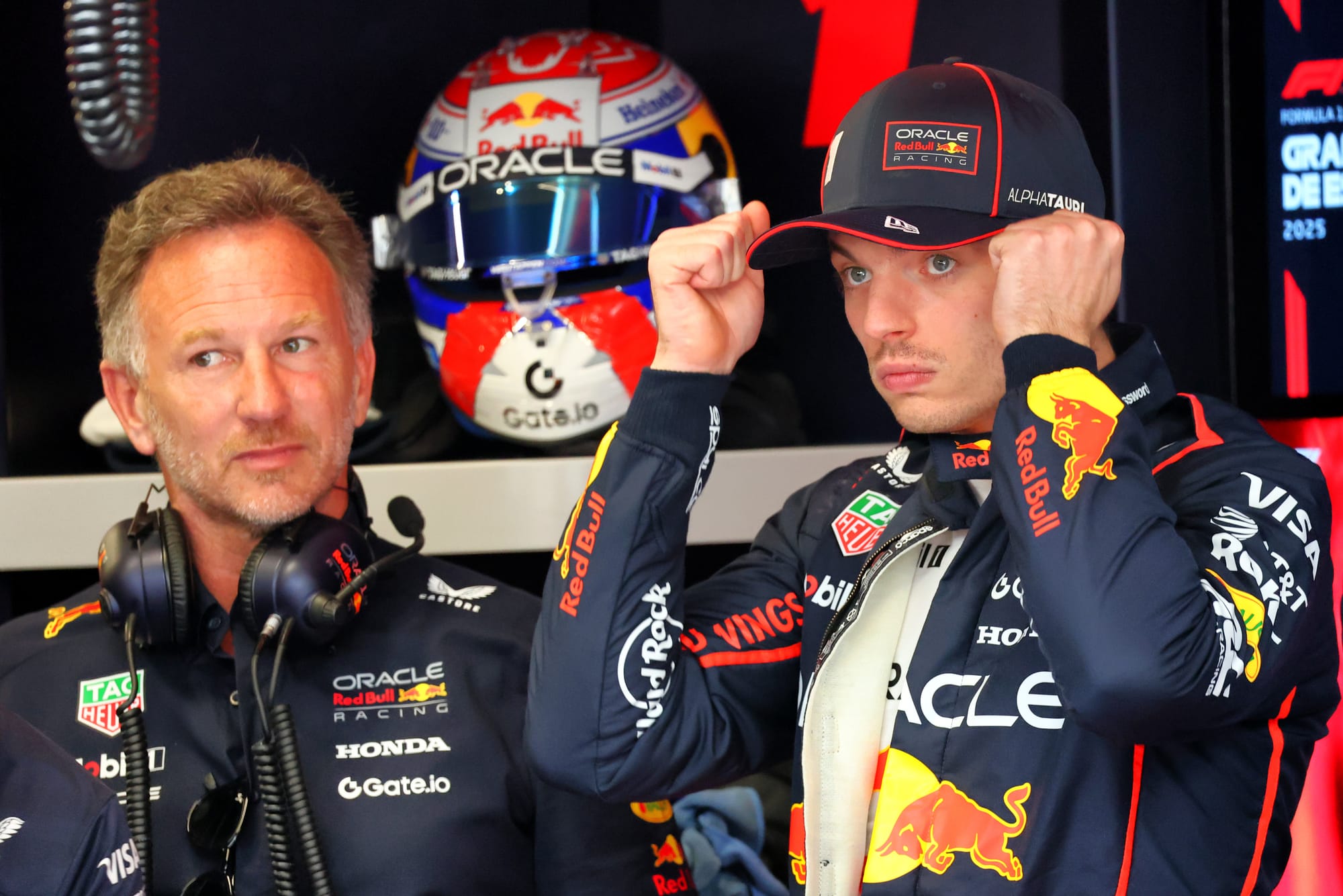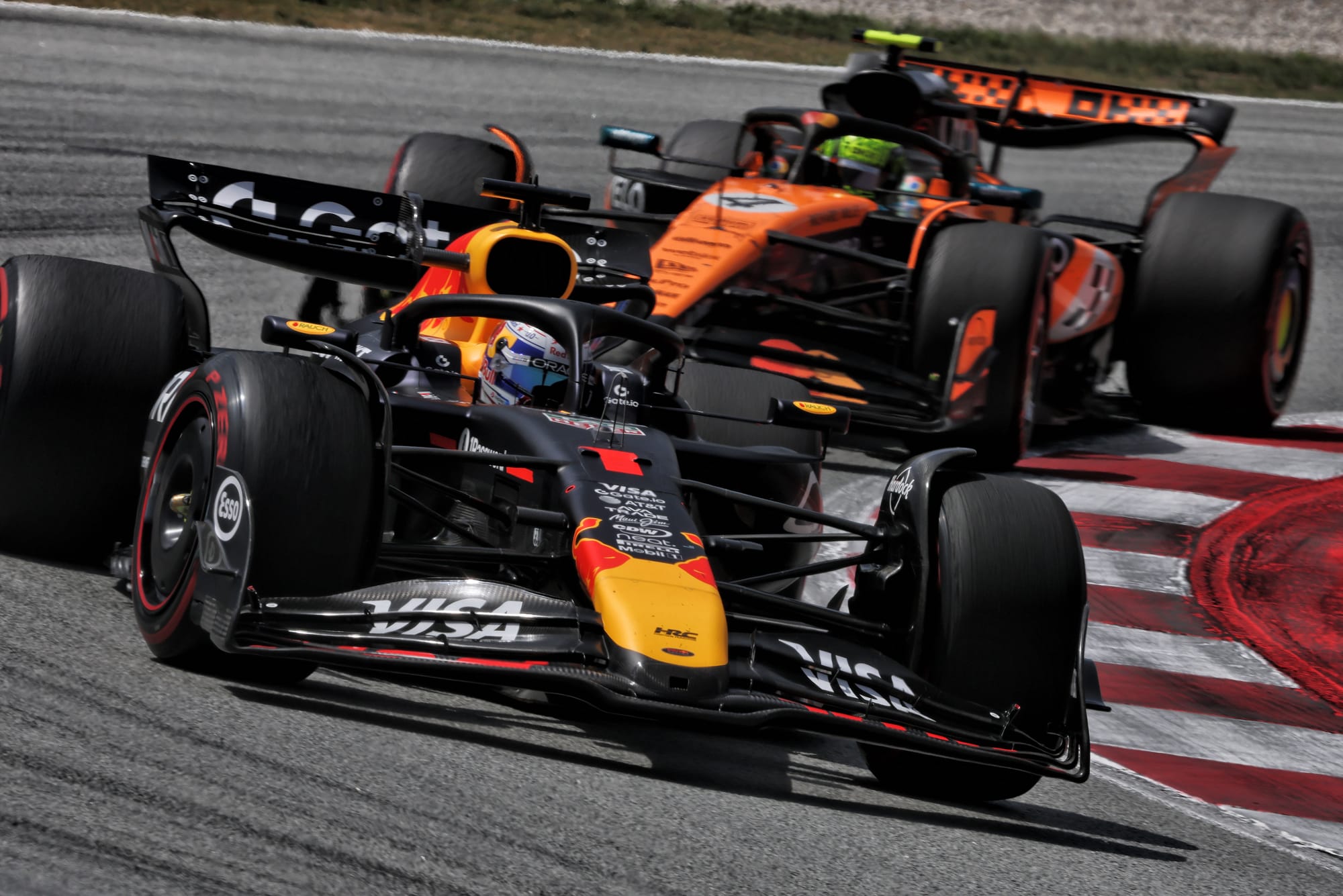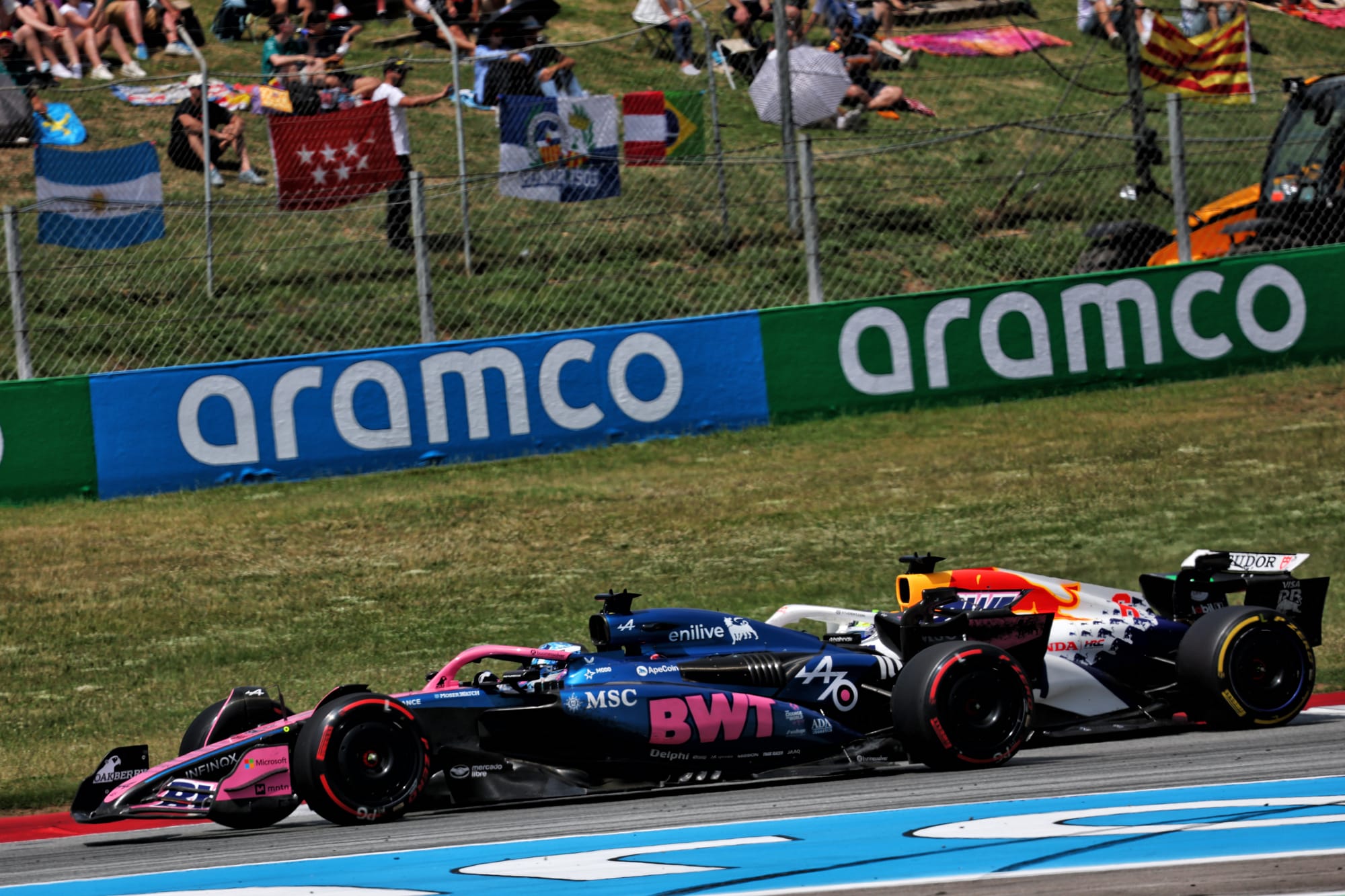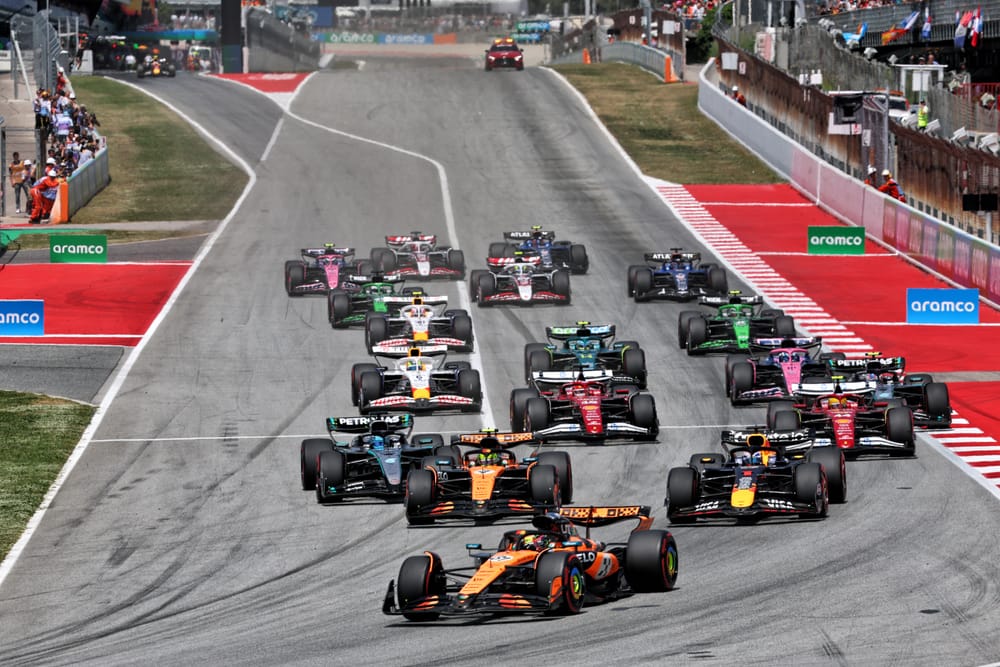Formula 1's flexi wing clampdown at the Spanish Grand Prix proved to be a bit of a damp squib for those who expected it to be a game-changer.
The form book was not ripped up, as McLaren locked out the front row and secured a 1-2 finish, and elsewhere it was hard to see anyone who had particularly lost or gained much.
As Mercedes technical director James Allison said: "I think if space aliens were watching it from afar, they would probably not have detected that a technical directive happened in Spain."
But just because there was no revolution, and pacesetter McLaren did not seem slowed down at all, that does not mean F1 is not going to see long lasting effects.
It could be as we head to circuits with different characteristics – especially those that require a much bigger compromise between high-speed and low-speed corners – that the impact may well be more evident.
As McLaren team principal Andrea Stella admitted in Spain, while the new stiffer front wings have not produced a dramatic change in the competitive order, they have changed the nature of the cars.
For as they lose the gains that a flexi wing offered for addressing low-speed understeer and high-speed oversteer, teams are having to choose where to take the hit.
"In terms of balance, when you have less of an aero-elastic effect, you will have a slightly more pointy car in high speed, and slightly more understeering in low speed," Stella explained.
"But everything is so small that it's within the noise, within the noise of a variation from one lap to the other."
The impact may be small, and that be especially true for a well-balanced car such as the McLaren that has made big gains in suspension dynamics this year, but in a year where details matter, it is being felt.
For Allison, whose team made good gains in improving its car balance with flexi wings last season, the outcome of the technical director has definitely triggered a change.
"It does have an effect," he said last week. "The fact that the wings stiffen up means that it tends, all other things being equal, to make the car more nervous as you turn into a high-speed corner.
"But you can mitigate that with other parts of the set-up of the car, and even if you can't mitigate them fully, neither can everyone else.
"So while it is less optimal as a design for the car's performance, the fact that everyone else is having to eat it as well means that the relative pecking order doesn't shift a lot."

Red Bull team boss Christian Horner suggested that, with teams able to seek balance through other tools such as suspension and differential settings, it was no real surprise that things had not been so different in Spain.
He also reckoned that the impact was minimised by the fact teams had known about the flexi wing changes coming for months – so would have been well prepared to work around things.
"There's been enough time for teams to get their head around it," he explained.
"For us it was a very, very minor impact. It was a slight characteristic change, but nothing much. It was a change, it's a change for everybody, and I think people have had time to adapt."
But as F1 heads to tracks with different characteristics, with Montreal consisting mainly of low and medium-speed corners but with suspension compromises because of the kerbs, the Red Bull Ring offering a wider speed range and then Silverstone being pretty high-speed, a much clearer picture of the impact will emerge.
And there is another aspect to Spain that perhaps fell under the radar. That is of whether the competitive picture did change – but perhaps not enough to shake up the order yet.
Sure McLaren was dominant, but as Stella admitted – on a hot day when its car usually excels – rival Red Bull was close on pace terms as Max Verstappen's three-stopper was not far from paying off.
"We thought it was not going to be a problem because we had already overtaken him [Verstappen] on track, and we should have a decent pace advantage," explained Stella.

"But the reality is that he was fast. He was fast and when we went on the medium tyres in the second stint, we were pushing, controlling the pace, and he was catching up very rapidly, more rapidly than we hoped for.
"At some stage we even asked our driver, 'we should push more', and both gave answers like, 'I'm not sure I have much more pace than this'."
Ferrari boss Fred Vasseur reckoned that differences triggered by the TD were there if you looked closely – but it was never going to be big enough to completely close down a three-tenths of a second advantage that McLaren's rivals believe it has right now.
"If you change the delta performance by one tenth, it can make a huge difference in terms of position - but not compared to McLaren, because they are still, for me, two to three tenths ahead," said Vasseur.
"I think that if you take the picture of the race, on lap 40, we were five seconds behind Norris at one stage. That pace was much better than three/four races ago when we were lapped in Miami. I don't want to say that it's the front wing…
"But even if it's not the biggest performance contributor, you have to take it into consideration, because for one tenth, you move completely, you change completely the grid, and it means that it can be a position differentiator."
Plus maybe we did see some surprises in the pack that perhaps were not so linked to the flexi wing rules – like Sauber's super strong Barcelona where it scored its best finish for three years.

As Alpine's Pierre Gasly said on a weekend his squad was back in the points: "I'm not going to lie, it's a bit strange. Williams looked the fastest car of the midfield the whole season and you come here and they are not.
"Sauber didn't look particularly competitive the whole season and you come here and suddenly they are overtaking a Ferrari.
"For sure, I think we might see a few differences with this new front wing…"
The jury remains out for now, but Canada should give us a better clue about just what the real impact will be.



